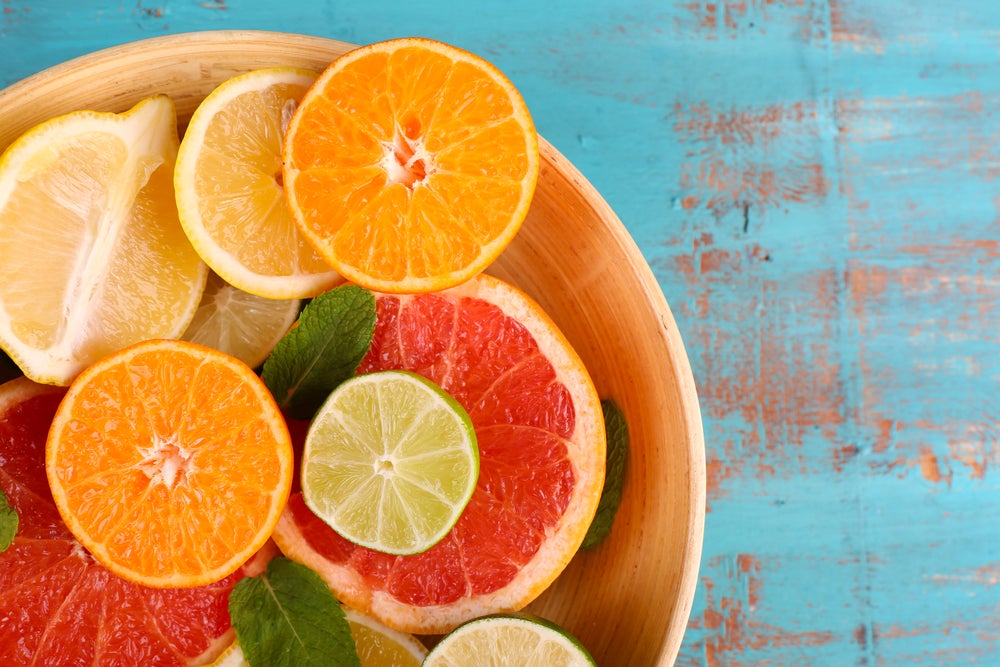Everything Runners Should Know About Vitamin C

Vitamin C is especially important for runners, as it aids in the growth and repair of tissue in the body. It isn’t stored in the body, so to get it, you have to consume it in your daily diet. How do you know if you’re getting enough? And what is the best way to get it? Emily Brown, RDN, LDN, a wellness dietitian at the Mayo Clinic Healthy Living Program, has the answer to that, and more.
What benefits can athletes get from vitamin C?
Vit C is part of a class of micronutrients described as antioxidant nutrients. Antioxidants are most notable for the roles they may play in protecting the body from oxidative damage caused by free radicals. The body has its own antioxidant defense system and regular exercise may actually enhance this system and the body’s ability to protect itself, thereby reducing the need to depend on high doses of exogenous antioxidants like C.
It is also helpful for runners following a vegetarian diet pattern or with limited intake of animal products. The form of iron found in foods like green leafy vegetables, beans and legumes, and fortified cereals is not as absorbable as the form of iron found in meat. When iron-containing plant foods are consumed with a source of vitamin C (such as a spinach salad with mandarin orange slices), iron absorption is enhanced.
Do people not get enough vitamin C? How do you know if you are getting enough?
Most Americans consume an adequate amount of vitamin C through a varied intake of both fresh and processed foods. As noted by registered dietitian Katherine Zeratsky of the Mayo Clinic, “A large orange or a cup of strawberries, chopped red pepper or broccoli provide enough vitamin C for the day.” Runners who participate in strenuous training for extensive periods of time may have increased needs for the vitamin, among other micronutrients, compared to sedentary individuals. Additionally, any individual with a restricted or unbalanced diet may be at risk poor micronutrient intake in general. Those most at risk are those who avoid certain foods or foods groups in the diet and those with very low energy intake.
Poor wound healing may be an early sign the one is not consuming enough vitamin C, as it is an important nutrient for the formation collagen found in tissues throughout the body.
What’s the best source of vitamin C?
When you think about the best sources, think about foods with the brightest colors. For fruits, best sources include citrus fruits, papaya, strawberries, pineapple, cantaloupe and kiwi. Many vegetables are also great source, including bell peppers, broccoli, cauliflower, cabbage and Brussels sprouts.
The levels of vitamin C in fruits and vegetables are significantly reduced through processing and cooking. To get produce with the most vitamin C, it is optimal to shop locally and buy produce that has been freshly harvested, consume fruits and vegetables in their raw and whole state whenever possible, and cook using methods such as steaming or microwaving for a short time instead of boiling or baking. For fruits and vegetables that are out of season, frozen versions are a great substitution. Often these are foods that have been flash frozen soon after harvesting, which preserves much of the vitamin content by slowing down the ripening and oxidation processes.
Are there any misconceptions of vitamin C that you think people have? Anything they need to understand?
Vitamin C and cold prevention? Evidence from reputable studies investigating the effect of vitamin C supplements on the common cold does not support the theory that it is effective in preventing the illness. However, increasing vitamin C consumption or using a vitamin C supplement at the first sign of a cold may help reduce the duration and severity of the symptoms in some individuals. Keep in mind that vitamin C is a water-soluble vitamin, therefore any amount ingested beyond what the body needs will be excreted through the body’s waste. While the risks associated with too much vit C are relatively mild, individuals with a history of developing kidney stones are often advised against vitamin C supplements.